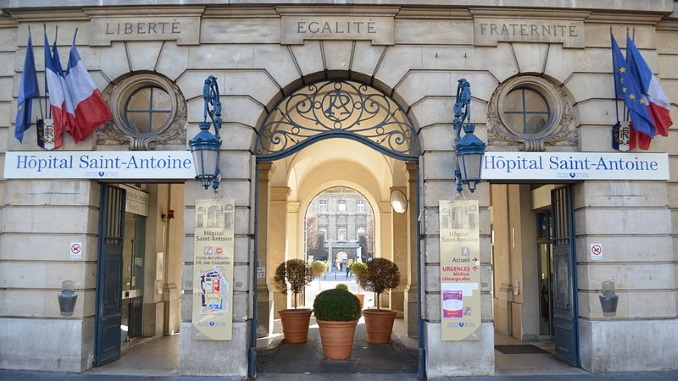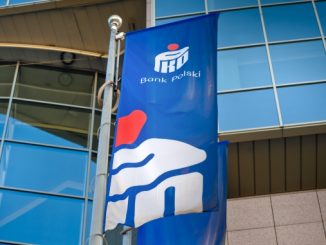
Caffil sold the first French covered bond in either green or social format on Tuesday, a EUR1bn eight year healthcare deal that drew over EUR2.6bn of orders and marginally outperformed the most recent comparable supply, according to a lead, while Moody’s said the ESG move is credit positive.
Caisse Française de Financement Local (Caffil) held a roadshow the preceding week to introduce a framework established with its parent, SFIL, whose proceeds are earmarked for refinancing public hospitals. Last Monday afternoon it then said it would soon launch an inaugural eight year public sector covered bond off the programme.
Leads BayernLB, BNP Paribas, Crédit Agricole, ING and SG the next morning went out with initial guidance of the mid-swaps plus 16bp area for the eight year euro benchmark. Books were above EUR1.5bn, excluding joint lead manager (JLM) interest, within three quarters of an hour, and the guidance was revised to 12bp+/-1bp, will price in range, with orders over EUR2.5bn after a little over an hour and a half. The deal was ultimately sized at EUR1bn and priced at 11bp over on the back of books above EUR2.6bn, including EUR50m JLM interest, pre-reconciliation.
“Given that they got to flat versus fair value, all in all it was a great trade,” said a lead syndicate banker.
“The framework was well received and we got a lot of decent-sized tickets from SRI investors.”
Sami Gotrane, head of treasury and financial markets at SFIL, said the group was very pleased with the transaction.
“We had an orderbook above EUR2.6bn after only two hours with over 110 investors participating in the transaction,” he said. “We have done an extensive European roadshow and we are particularly pleased to see that more than one-third of the transaction was allocated to investors with a strong commitment to sustainable investment.”
Banks were allocated 45% of the new issue, asset managers 35%, insurance companies 13%, and central banks and official institutions 7%. Germany and Austria took 39%, the Benelux 19%, France 17%, the Nordics 14%, the UK and Ireland 4%, Asia 3%, and others 4%.
While Caffil achieved pricing flat to its curve like covered bond issues the previous week taking advantage of buoyant market conditions, 10 year benchmarks for ING and CBA the previous day were priced with new issue premiums of 1bp-2bp. The lead syndicate banker suggested that this may have been because the Swedish and Norwegian credits who achieved the tighter outcomes were rarer names or from scarcer jurisdictions than the Dutch and Australian issuers. He suggested that the “novelty” of Caffil’s social bond enabled it to achieve a similar outcome to the scarcer paper despite the French name being a regular issuer and this being its third transaction this year after a dual-tranche deal, incorporating EUR750m six and EUR500m 15 year issues, on 8 January.
“It also merited the more aggressive move,” he added, with Caffil moving 5bp from the middle of initial guidance to re-offer, compared with 4bp for the previous day’s issuance.
Moody’s said the social bond issuance is credit positive for SFIL and Caffil, as it allows them to diversify their investor base and to potentially reduce funding costs.
“The social bond will extend their investor base to investors with strict environmental, social and governance (ESG) requirements that would not have purchased other Caffil covered bonds, and to frequent covered bond buyers that will allocate these securities to their ‘sustainability’ portfolios,” it said. “Enlarging the investor base is also critical to enhancing Caffil and SFIL’s capacity to refinance maturing covered bonds in the market and limit the risk arising from asset-liability mismatch.
“The new social bond issuance fits well within SFIL’s mission as a public development bank, and does not imply any change or relaxation of its loan underwriting and origination criteria,” the rating agency added.
Gotrane (pictured) said that financing social investments is at the heart of the group’s activity.
 “We are lending on average close to EUR500m per year to public hospitals in France,” he said. “As one of the leading lenders to social projects in France, we will be a regular issuer in the social bond market. This transaction provides an opportunity for investors to participate in the financing of social projects in France.”
“We are lending on average close to EUR500m per year to public hospitals in France,” he said. “As one of the leading lenders to social projects in France, we will be a regular issuer in the social bond market. This transaction provides an opportunity for investors to participate in the financing of social projects in France.”
The group will in future be a regular issuer in both green and social bonds.
“For green bonds, we plan to focus on green investments by local government in France, for example clean local public transport, green buildings, water and waste management,” said Gotrane.
“The social bond framework is a framework on the group level – both SFIL as an agency issuer and CAFFIL as covered bond issuer can issue social bonds within the framework. We plan to adapt a similar approach for green bonds.”



